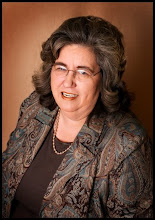You know what they say about smart minds think alike or something like that. Yesterday was one of those days where several of my favorite blogs and my email messages were thinking along the same lines. Most of us want to find understanding for our children who experience special needs but it is interesting the difference in the way we go about it.
According to my blog stats, there was a lot of visitors from a post on Neurodiversity’s weblog, One for the Times. In that post Kathleen Seidel is commenting on a book review by Polly Morrice for the New York Times on the book A Mind Apart by Susanne Antonetta. Kathleen found the review condescending toward people with various neurodiversities. I have not read the book A Mind Apart though I am eager to after reading Morrice’s review of it.
Kathleen writes: “Increasingly, many publicly assert that their lives are not overwhelmingly tragic, however great the troubles they or their families face due to their “off kilter traits.”
I wrote to Kathleen to thank her for links to this blog. Reading her reply, I stepped further on the soapbox I started yesterday before I read her blog and email. Kathleen wrote: “I hear from a lot of people who assume that the only parents who can feel good about parenting a kid on the autistic spectrum are ones whose kids are relatively "high-functioning." Thank you for making it so clear that that's hogwash.”
Society strives for excellence. There is nothing wrong with trying to be the best we can be. I want that for my complex special needs son, Billy Ray, as well. He will not be a Rhodes scholar and president like Bill Clinton but he has value to contribute to the world. He does not have to do the things road scholars do. He is entitled to have the opportunity to the best he can do.
In addition to the striving for excellence, there is a major striving to end all suffering. That is certainly an important effort. The problem is that disabilities which are preceived as suffering are not always understood enough to make informed choices. I am not talking about abortion here though some of the quoted articles reference that. There are many other choices to make relative to our children such as whether to bring them into our home, school programs, the effort we will put into their care and education, etc.
In The Problem With an Almost-Perfect Genetic World article in the NY Times 11/20/05, Andrew Imparato, president of the American Association of People With Disabilities, is quoted as saying “We're trying to make a place for ourselves in society at a time when science is trying to remove at least some of us.”
Susan Senator’s post Disability Baggage Check comments on the upcoming book A Different Kind of Perfect, by Cindy Dowling, Neil Nicoll, and Bernadette Thomas. Susan uses humor (which she does so well) to make the point about doctor’s who give their opinion along with the news that a newborn has one disability or another.
It seems important to remember that until the last decade or so large governmental institutions were home to a large percentage persons experiencing disabilities. The trend to close those institutions and bring their residents into the community is still evolving. Communities have not necessarily been familiar sure how to be accepting.
Even doctors and other professionals may not have had the opportunity to care for as many neurodiverse persons because they were not part of the average practice. I created the documentation system in Parenting Your Complex Child (AMACOM Books, April 2006) to help Billy Ray’s doctors see him as he really is before they treated him.
The more we as parents talk about our children, advocate for their needs and bring them out into the community (even the smaller community I recommend in Parenting Your Complex Child) the greater chance the winds of change will occur.
George F. Will, well known columinist and media person, writes of his son in Jon Will’s Aptitudes . The last line of his article comments that Jon was born on his father’s birthday and that he is the gift that keeps on giving.
Being Billy Ray’s Mom is without a doubt the greatest challenge of my life. However, being Billy Ray’s Mom is absolutely the greatest joy in my life too. I wouldn’t trade him what we have had together for the 13 kids (like my grandmother had) that I dreamed of.
Until tomorrow,
Peggy Lou Morgan
http://www.parentingyourcomplexchild.com/
http://www.lighthouseparents.com/
Everything Upside Down!
14 years ago






No comments:
Post a Comment